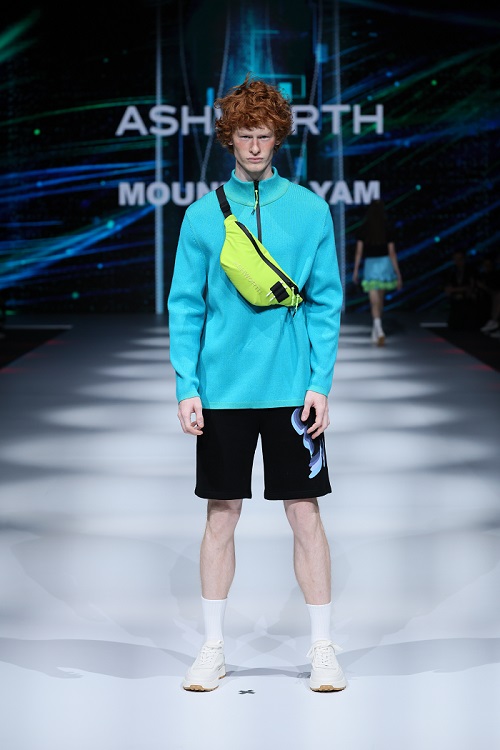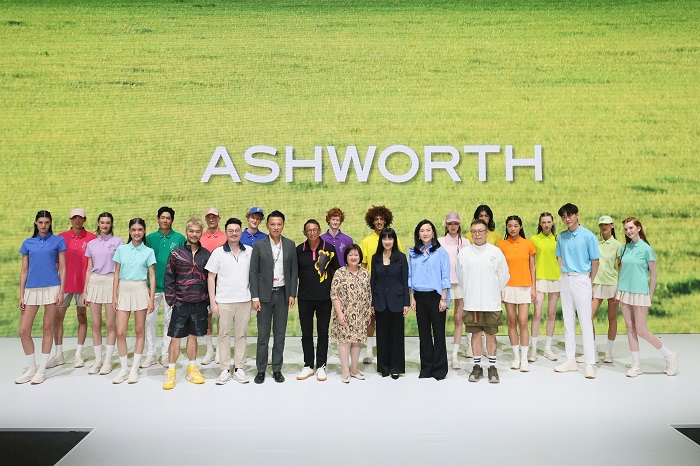FW
Mahlo GmbH + Co KG will showcase its latest innovations in efficient, sustainable, and high-quality textile production and finishing at the upcoming ITMA Asia 2024 exhibition.
The company will collaboration with Shanghai Kuantex, Mahlo to focus on the theme of production optimisation. It will demonstrate its modular process control system, ‘Optipac VMC,’ and the enhanced data management platform, ‘mLog Enhanced.’ These systems enable superior monitoring and control throughout the textile production process, ensuring consistent quality and operational efficiency.
At the forefront of Mahlo’s showcase will be its cutting-edge straightening concept designed for the feed-forward control of knitted fabrics with large and variable distortions. The flagship straightener, ‘Orthopac RXVMC-20,’ which debuted as a prototype last year, has now been successfully implemented across multiple installations worldwide, proving its effectiveness in diverse applications.
Mahlo will also unveil another breakthrough machine that can be used both as a standalone straightener or retrofitted to existing machinery.
With Asia playing a central role in global textile manufacturing, ITMA Asia provides a valuable opportunity for Mahlo to present its technological advancements to an international audience. The event allows industry professionals to engage with the latest trends and forge critical connections in the textile sector. It is slated to be held from Oct 14-18, 2024 at the National Exhibition and Convention Centre in Shanghai, China.

The Global Sourcing Expo, organized by the International Expo Group, has positioned itself as Australia’s premier sourcing platform, with editions in both Sydney and Melbourne. This event plays a crucial role in connecting exhibitors from across the globe with manufacturers, wholesalers, and retailers from Australia, New Zealand, and the Asia-Pacific region. Launched over a decade ago, the expo has grown to become a cornerstone for apparel and textiles sourcing in Australia.
A hub for apparel and textiles sourcing
The upcoming Melbourne edition, scheduled from November 19-21, 2024, at the Melbourne Convention and Exhibition Centre, promises a dynamic experience for attendees. Featuring over 900 exhibitors from countries including India, Bangladesh, Turkiye, and Vietnam, the expo is set to be a global showcase. Co-located with the Footwear and Accessories Show and the China Clothing Textiles Accessories Expo, it offers a diverse range of sourcing opportunities for visitors. The Global Sourcing Seminars program will further enrich the event with a focus on contemporary sourcing trends.
Julie Holt, Global Exhibitions Director of the International Expo Group, emphasized the importance of the Global Sourcing Expo, noting its strong focus on addressing contemporary trends and challenges in global sourcing. She highlighted the event’s ability to consistently attract high-quality suppliers from both established regions and emerging sourcing hubs, ensuring that attendees are provided with a dynamic and refreshed experience each year.
Strategic expansion and industry partnerships
The Global Sourcing Expo has seen significant growth in recent years, driven by its strategic partnerships and emphasis on engaging with the industry. Julie Holt credits much of this success to her team's expertise and their dedication to developing a comprehensive audience database. Their strong research and curation efforts have enabled the Expo to deliver top-quality seminar content, carefully tailored to meet the diverse needs of its attendees.
Key to the expo’s success is its collaboration with industry stakeholders and visitors. Each edition of the expo introduces new features, such as panel discussions on hot topics and the inclusion of sourcing regions and industry groups previously unexplored. The Australian market is a focus for manufacturers and suppliers globally, and the Expo has leveraged this interest to build strong industry relationships.
Julie Holt emphasized that each edition of the Global Sourcing Expo is designed to offer something new. Whether through updated panels, added features, or the inclusion of different sourcing regions, the expo is continuously refined to align with the evolving needs of its attendees.
Post-pandemic growth and future expansion
Despite a brief interruption due to the Covid-19 pandemic, the Expo has rebounded strongly. Visitor attendance surged by 46 per cent at the most recent Sydney show in June 2024. The demand has grown so significantly that the organizers are now planning a biannual edition in Sydney to cater to seasonal shifts in the industry. The Melbourne edition is also showing strong pre-registration numbers.
Julie Holt highlighted the increase in attendance and interest in both the Sydney and Melbourne editions, indicating a strong demand for expanded sourcing opportunities. She expressed enthusiasm for further developing the Expo into a biannual event, ensuring continuous engagement between buyers and sellers throughout the year.
Focusing on sustainability and innovation
A major shift in the sourcing landscape has been the increasing focus on sustainability. The Global Sourcing Expo has responded to this trend by curating seminars and featuring suppliers that emphasize mindful and responsible sourcing. The Expo is placing greater importance on sustainability, differentiation, quality, and functionality to align with the evolving demands of the market.
The Expo aims to meet the diverse needs of its audience, from beginners in global sourcing to experienced professionals. With tailored seminar content, it offers a comprehensive experience for all attendees. Business matching services also play a pivotal role, helping visitors connect with suppliers that meet their specific needs.
Looking ahead: Building partnerships for long-term success
The future of the Global Sourcing Expo lies in its ability to expand and strengthen partnerships with apex industry organizations, both within Australia and internationally. Holt emphasizes the importance of these relationships in ensuring Australian buyers have access to top-tier sourcing opportunities without needing to travel overseas.
The Expo is set to strengthen its relationships across all levels of the apparel and textiles supply chain. Julie Holt emphasizes that sourcing is a multifaceted process, involving not just buying and selling, but also research, logistics, finance, technology, and design collaboration. She highlighted the Expo's commitment to developing as a key destination for solving challenges across the global sourcing and supply chain ecosystem.
As the Global Sourcing Expo continues to grow and evolve, it remains a key player in the global apparel and textiles industry, providing a critical platform for sourcing, innovation, and sustainability.

The GREENEXT EXPO, a major event focused on sustainability and environmental responsibility, recently concluded in Shanghai. The Expo, held at the Shanghai Exhibition Center, brought together global leaders, innovators, and industry experts to explore the intersection of environmental protection and business practices.
Celebrating 20 Years of UNGC ESG principles
This year's Expo held special significance as it coincided with the 20th anniversary of the United Nations Global Compact (UNGC) ESG principles. These principles, encompassing environmental, social, and governance factors, have become a standard for corporate sustainability.
Global participation and focus on innovation The GREENEXT Expo attracted over 4,300 attendees and featured over 100 global brands and companies. The event was divided into three thematic zones: the United Nations Global Compact, “Fashion Reborn,” and “Living Earth.” Each zone showcased the latest innovations and solutions for achieving sustainability in various industries.
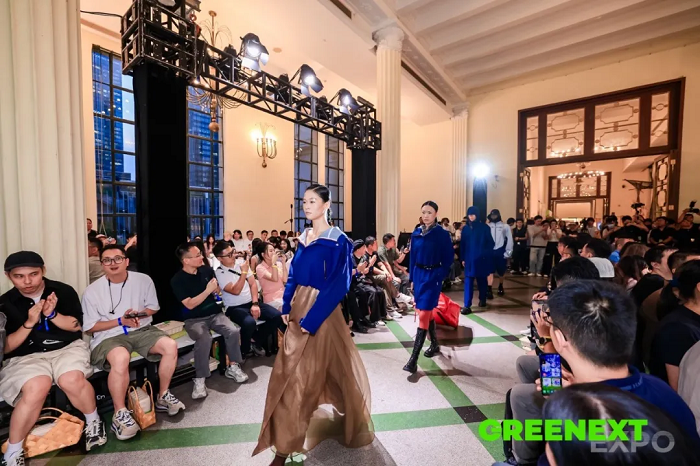
Key highlights and announcements
• The Expo hosted numerous keynote speeches, panel discussions, and workshops, with over 120 industry experts sharing their insights.
• Renowned brands like Nespresso, TES Group, Esquel Group, and JIANGNANBUYI showcased their latest technologies and sustainability initiatives.
• The “Fashion Reborn” zone featured innovative solutions to reduce the environmental impact of the fashion industry.
• The "Living Earth" zone focused on soil science and sustainable land development.
Key highlights
• United Nations Global Compact: The special exhibition “Uniting Global Enterprises for a Better World: ESG+20 Pathways to Sustainable Development” showcased major achievements and practice cases in global sustainable development.
• "Fashion Reborn" Zone: Visitors experienced innovative solutions designed to reduce the environmental impact of the fashion industry and enhance sustainability.
• "Living Earth" Zone: This zone focused on soil science and sustainable land development across various industries, advocating for the protection and sustainable use of soil.
• The Expo hosted numerous keynote speeches, panel discussions, and workshops, with over 120 industry experts sharing their insights.
• Renowned brands like Nespresso, TES Group, Esquel Group, and JIANGNANBUYI showcased their latest technologies and sustainability initiatives.
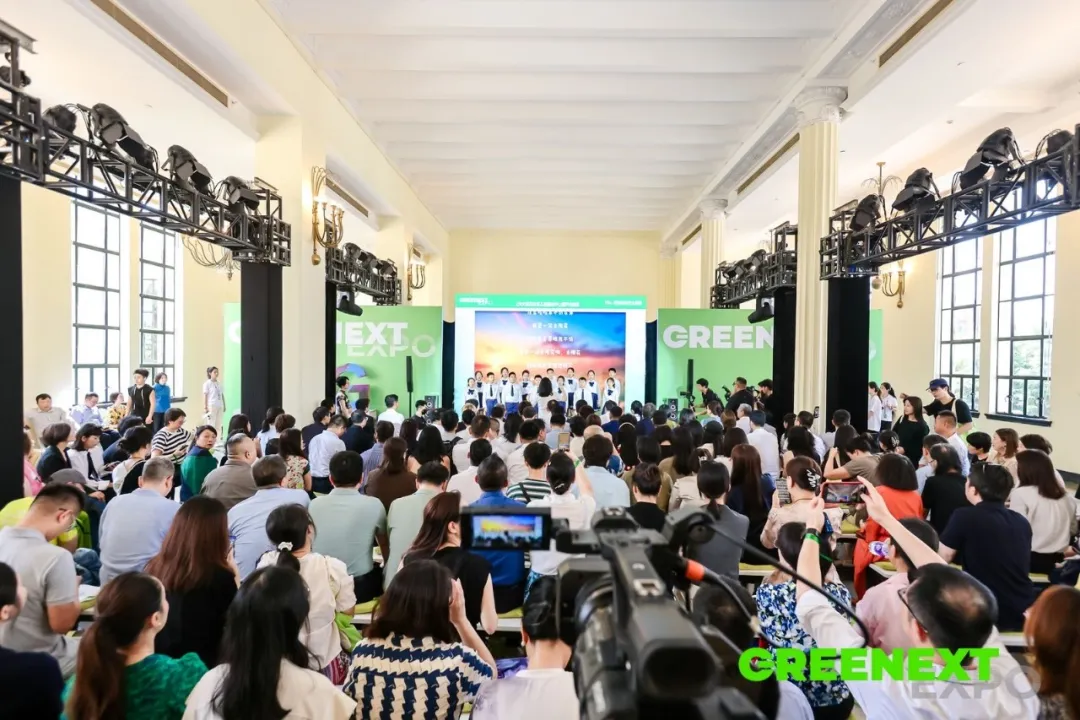
Thought leadership and collaboration
The expo served as a platform for thought leaders to discuss and advance the understanding of ESG and carbon neutrality. The opening ceremony featured speeches from Dr. Hong Zheng, Founder of GREENEXT, and representatives from various organizations, all emphasizing the importance of ESG in global sustainable development.
Interactive experiences and public engagement
GREENEXT offered a range of public activities to promote sustainable lifestyles. These included a dance-martial arts fashion performance, a sustainable fashion show, and numerous art installations. The expo also featured educational check-in sites and science Q&A points to encourage public participation.
Looking Ahead
The successful conclusion of the GREENEXT EXPO marks a significant step forward in the global sustainable development movement. The event fostered collaboration, showcased innovative solutions, and inspired action toward a greener future. As Dr. Hong Zheng stated, GREENEXT is "a platform where global like-minded individuals come together to explore and achieve a green future." The Expo's impact will undoubtedly continue to resonate as businesses and individuals strive for a more sustainable and environmentally responsible world.
The air crackled with anticipation at The Stage, CENTRESTAGE,Hong Kong Convention and Exhibition Centre. It was the 4th of September, and ASHWORTH, the renowned golf apparel brand, was about to unveil its latest collection. But this wasn't just any fashion show; this was a journey through time, a collaboration with the visionary Hong Kong designer Mountain Yam.
A time vortex of style
As the lights dimmed, the audience was transported into a mesmerizing time vortex. The stage became a canvas for ASHWORTH's legacy, its relentless pursuit of innovation, and a glimpse into the future of golf fashion. The ASHWORTH x Mountain Yam Collection, with its theme of "evolution", materialized, showcasing bold cuttings, silhouette elements, and floating lines. The models strode down the runway, their attire a testament to the brand's metamorphosis - from traditional golfing attire to cutting-edge fashion.
Love to Golf: Springtime on the fairway
The "Love to Golf" theme bloomed on the stage, inspired by the azaleas of Augusta National Golf Club. It was a celebration of spring, a fresh beginning, and the inherent beauty of nature. Botanical motifs, palm tree patterns, and floral designs danced on the fabrics, blending golf and fashion into a vibrant style.
Under the Sea: Golfing by the ocean
The runway transformed into a shimmering seascape, and the "Under the Sea" collection surfaced. Cool-touch fabrics in hues of blue, adorned with liquefied, luminous, and blurred prints, evoked an enchanting feeling. This collection wasn't just about aesthetics; it was about functionality. UV protection and moisture-wicking properties ensured that golfers could perform at their best, even under the scorching sun.
ASHWORTH SS25 Collection: A tribute to tradition
The time vortex rewound to 1992, and the ASHWORTH SS25 Collection paid homage to Fred Couples' iconic victory at the US Masters Tournament. Classic silhouettes were reimagined, capturing the essence of tradition and elegance. This collection celebrated the timeless appeal of golfing attire, proving that style and performance could coexist harmoniously.
A fashionable legacy
As the show drew to a close, it was clear that ASHWORTH's collaboration with Mountain Yam had been a resounding success. They had seamlessly blended tradition with innovation, function with fashion. It was a celebration of evolution, not just in golf apparel, but in the brand itself. From its humble beginnings in California to its global presence today, ASHWORTH had proved that it was more than just a golf apparel brand; it was a fashion powerhouse.
In a recent interview at Centerstage, William Fu, CEO of YGM Group, shed light on the evolution of Ashworth, a golf and lifestyle brand with a rich history. From its American roots to its worldwide expansion under YGM's stewardship, Ashworth is navigating the changing landscape of consumer behavior and embracing new fashion frontiers with designer Mountain Yam.
Key Takeaways:
• Ashworth has successfully transitioned from a golf brand to a global lifestyle brand.
• The collaboration with Mountain Yam exemplifies the brand's commitment to innovation and fashion.
• Hong Kong serves as an effective base for managing Ashworth's global operations.
A legacy of licensing
Fu revealed Ashworth's long-standing relationship with YGM, tracing back to 1998 when they became the brand's licensee in Greater China. In 2017, following Adidas's sale of TaylorMade, YGM acquired Ashworth globally, building on their two decades of experience with the brand.
Today, Ashworth operates through a network of partners across America, Europe, Korea, and is actively exploring expansion into Japan and other Asian markets. Greater China and America stand as the two largest markets for the brand, with retail and green grass (golf courses and pro shops) being the dominant sales channels in Greater China.
Adapting to the 'New Normal'
The COVID-19 pandemic has accelerated a shift towards casual sportswear, as people seek outdoor activities and prioritize health and wellness. Fu observed that this trend has fueled the growth of the sports leisure market, while formal wear has taken a backseat.
"People are mixing sports and fashion together," Fu stated, underscoring Ashworth's collaboration with Mountain Yam, a young and energetic Hong Kong designer known for his fashion-forward approach. The partnership aims to infuse Ashworth's sportswear with a fresh dose of style and appeal to a wider audience beyond golf enthusiasts.
Gen Z and Millennials: The new consumer
Ashworth targets a diverse audience, recognizing that modern consumers prioritize comfort, functionality, and design. Fu believes there are no boundaries when it comes to consumer preferences and emphasized that people buy what they feel good in, regardless of whether they are golfers or not.
However, the brand also acknowledges the evolving tastes of Gen Z and millennials, who seamlessly blend sports and fashion in their everyday lives. The collaboration with Mountain Yam reflects Ashworth's commitment to stay relevant and resonate with younger generations.
A global outlook, with India on the horizon
While Ashworth is currently not present in India, Fu expressed openness to exploring the Indian market in the future. Recognizing India's rapid growth and youthful demographic, he sees it as a potential market for YGM's brands, although the timing needs to be right.
With its global footprint and evolving fashion sensibility, Ashworth is poised for continued success in the dynamic world of golf and lifestyle apparel. The brand's collaboration with Mountain Yam marks a new chapter in its journey, one that embraces innovation and caters to the changing tastes of modern consumers.

The United States Department of Agriculture (USDA) released its September World Agricultural Supply and Demand Estimates (WASDE) report, providing an updated outlook for the global cotton market in the 2024-25 marketing year. The report indicates increased projections for production, consumption, and ending stocks compared to the August estimates.
Global cotton production
Downward revision: Global cotton production for 2024-25 is projected to decline by 2.2 million bales to 113.7 million bales compared to the August estimate. This is due to reduced output in India, China, and Pakistan are the primary drivers of this downward revision.
Table: Global cotton production estimates
|
Region |
Production (mn bales) |
Change from August |
|
United States |
18 |
+0.5 |
|
China |
28.5 |
-1 |
|
India |
24.5 |
-1 |
|
Pakistan |
5 |
-0.5 |
|
Brazil |
13 |
- |
|
Other |
24.7 |
- |
|
World |
113.7 |
-2.2 |
Global cotton consumption
Slight increase: Even as production is expected to fall, global cotton consumption is projected to increase slightly to 116.0 million bales, a rise of 0.4 million bales from the August estimate. This is because consumption growth in Bangladesh, Vietnam, and Turkey is expected to offset lower consumption in China and India.
Table: Global cotton consumption estimates
|
Region |
Consumption (mn bales) |
Change from August |
|
China |
35 |
-0.5 |
|
India |
25.5 |
-0.5 |
|
Pakistan |
10 |
- |
|
Bangladesh |
8.5 |
+0.5 |
|
Vietnam |
7.5 |
+0.3 |
|
Turkey |
6 |
+0.2 |
|
Other |
23.5 |
- |
|
World |
116 |
+0.4 |
As a result of a dip in production and higher consumption global cotton stocks are expected to decline significantly. Cotton ending stocks for 2024-25 are projected to decrease to 81.2 million bales, a decline of 6.5 million bales from the August estimate.
China’s ending stocks are estimated at 34.5 million bales, accounting for a significant portion of global stocks. India’s ending stocks are projected at 5.5 million bales. And the US ending stocks are estimated at 3.5 million bales.
Table: Global cotton supply and demand (million bales)
|
Item |
2023-24 (actual) |
2024-25 (August) |
2024-25 (September) |
|
Beginning stocks |
83 |
84.5 |
84.5 |
|
Production |
114.5 |
121 |
120.4 |
|
Consumption |
117 |
120 |
120.7 |
|
Ending stocks |
80.5 |
85.5 |
81.2 |
Reasons for current USDA estimates
India: The downward revision in India's production is linked to erratic monsoon rains and pest infestations. However, consumption remains robust, driven by a strong textile industry and growing domestic demand.
China: Lower cotton acreage and adverse weather conditions are impacting production in China. Consumption is projected to increase, driven by a thriving textile industry and growing domestic market.
Pakistan: Floods and pest attacks have affected cotton crops in Pakistan.
United States: Drought conditions have affected yields in major cotton-growing regions, leading to a lower production estimate. Despite this, consumption is expected to remain stable, supported by domestic textile mills and export demand.
Bangladesh, Vietnam, Turkey: Robust textile industries and export demand are driving consumption growth.
The USDA September report underscores the dynamic nature of the global cotton market. While production forecasts have been adjusted downwards in some major producing countries, consumption remains strong, particularly in China and India. The evolving supply and demand dynamics will continue to shape cotton prices and trade flows in the coming months. Market participants will closely monitor weather patterns, government policies, and economic conditions in key cotton-producing and consuming countries for further insights into the market's trajectory.
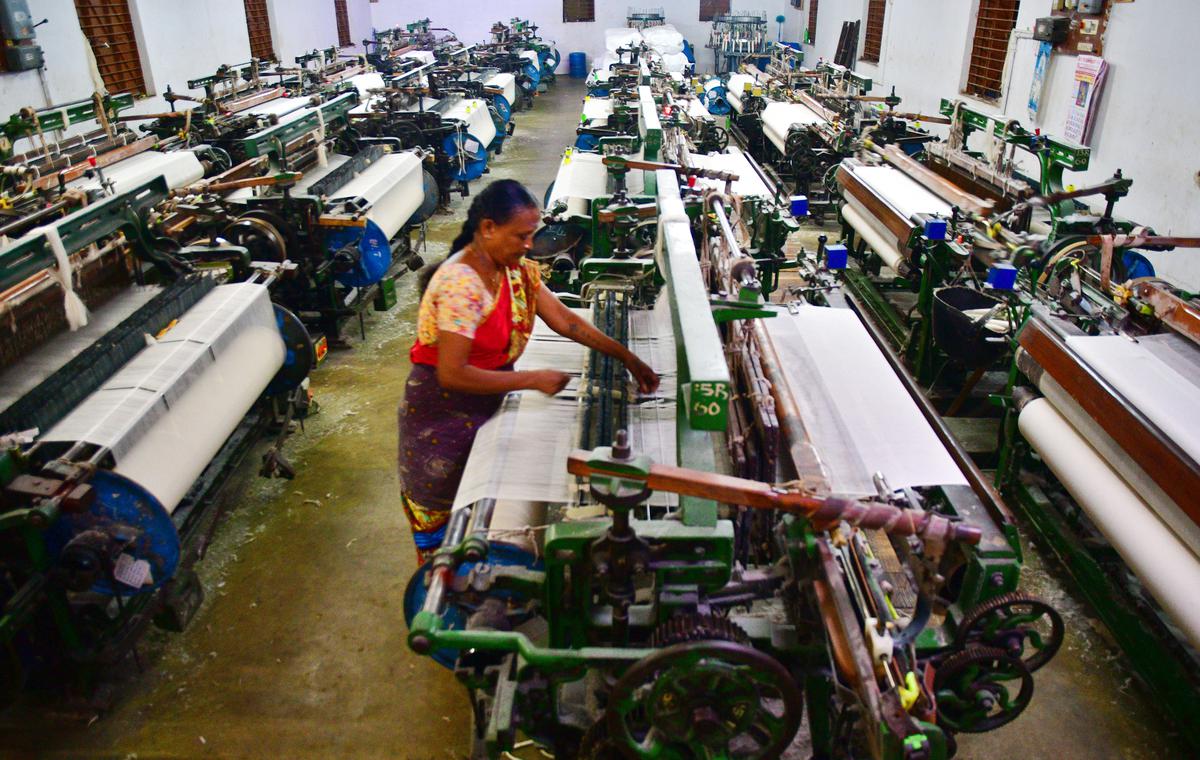
India's textile industry is facing significant challenges due to the rising prices of fibers, both natural and synthetic. Higher costs are disrupting supply chain, affecting domestic production, and impacting export competitiveness. The financial impact of escalating fiber prices is evident in industry data.
The depth of the challenge
Cotton prices: Cotton, a primary raw material for the textile industry, has seen a significant rise in prices. According to the Cotton Association of India, domestic cotton prices have risen over 30 per cent in the past year reaching a record high of Rs 65,000 per candy. International cotton prices have also seen a significant rise, making imports less attractive.
Table: Cotton price trends
|
Month |
Average cotton price (RS per candy) |
Year-on-year change (%) |
|
Sept 2023 |
50,000 |
- |
|
Dec 2023 |
55,000 |
+10% |
|
Mar 2024 |
60,000 |
+20% |
|
June 2024 |
63,000 |
+26% |
|
Sept 2024 |
65,000 |
+30% |
Man-made fiber costs: The prices of man-made fibers, including polyester and viscose, have also witnessed a sharp increase of almost 20 per cent due to rising crude oil and petrochemical prices. The overall production cost of textiles has increased by an estimated 15-20 per cent, squeezing profit margins for manufacturers.
Table: Man-fade fiber price trends
|
Fiber type |
Price change (past year) |
|
Polyester |
+25% |
|
Viscose |
+20% |
Impact on exports: The rising input costs have affected the competitiveness of Indian textiles in the global market. Export growth has slowed down almost 5 per cent, with some markets showing a decline in demand for Indian products. The higher prices are being passed on to consumers, leading to a decrease in demand for textiles in the domestic market.
Table: Price trends of key fibers
|
Fiber type |
Price increase in the past year |
|
Cotton |
30% |
|
Polyester |
25% |
|
Viscose |
20% |
Impact across textile sector
Indeed, the rise in input costs as affected both producers and consumers alike. Small and Medium Enterprises in the textile sector, which account for a significant portion of production, are the hardest hit. Many are struggling to cope with the increased costs and are facing reduced orders and potential closures. As Ramesh Kumar, President of the Textile Manufacturers Association explains, “The unprecedented increase in fiber prices is putting immense pressure on the textile industry. We urge the government to take immediate steps to stabilize prices and provide support to the sector."
Spinning mills that convert raw fibers into yarn, are facing a squeeze on their profit margins. The higher cost of raw materials is forcing them to either raise yarn prices or cut production. Garment manufacturers are also feeling the pinch as the cost of fabrics and yarns increases. This is leading to higher prices for finished garments, impacting consumer demand.
Exporters too are finding it difficult to maintain their competitiveness in the global market. The higher production costs are making Indian textiles less attractive compared to those from other countries. As textile exporter laments, “We are losing orders to competitors from Bangladesh and Vietnam due to the higher prices of Indian textiles. The government needs to intervene to make our exports more competitive."
And as for consumers, the rising prices of clothing and other textile products are impacting their purchasing power. Many are opting for cheaper alternatives or postponing their purchases.
Ripple effects across the supply chain
The impact of rising fiber prices is not limited to a single segment of the industry. It is creating a ripple effect across the entire textile supply chain. Cotton farmers for example, are benefiting from higher cotton prices, but they also face challenges such as increased input costs and weather-related risks. Traders and processors are facing difficulties in managing inventory and pricing due to volatile fiber prices. And retailers are grappling with higher wholesale prices, which they are forced to pass on to consumers, potentially impacting sales.
Meanwhile, the government and industry are taking steps to address the challenges posed by rising fiber prices. The government has announced measures to support the textile industry, including providing financial assistance to SMEs and promoting the use of alternative fibers. The industry is focusing on improving efficiency, reducing costs, and exploring new markets to mitigate the impact of rising fiber prices.
The bootmline is, the Indian textile industry is facing a challenging period due to the complex interplay of rising fiber prices, global market dynamics, and supply chain disruptions. While the government and industry are taking steps to address these challenges, the road to recovery is likely to be long and complex. The industry's ability to adapt, innovate, and collaborate will be crucial in navigating this turbulent period and ensuring its continued growth and success.
Manjunath Bhandary, Member of Legislative Council, announced that the Karnataka state cabinet has approved a Rs 270 million textile park project in Karkala, Udupi.
To be developed on a PPP model, the textile park was initially proposed by BS Yediyurappa, former Chief Minister in 2020-21. The foundation for the project was laid in March 2023 by V Sunil Kumar, Past Minister for Energy, Kannada, and Culture.
Upon completion, the park will become a significant hub for textile production in Karnataka, contributing to both employment and economic growth in the region. The park is expected to attract investment and enhance local production capacity, making it a key part of the state's industrial development strategy.
Being held from Sep 12-16 at Shilpakala Vedika, Hitec City in Hyderabad, the Silk India Handloom Expo 2024 celebrates India's vibrant handloom tradition by showcasing a range of intricate and exquisite handcrafted fabrics from across the country.
Organised by Desi Kalaa in association with Bengal Handloom Art, the event brings together artisans, weavers, designers, and textile enthusiasts under one roof. The expo was formally inaugurated by Prerana Simha, Counselor- Domestic Violence in association with Racha konda Commissioner ate, Women Safety Wing (SHE Teams) & International Political Psychologist, Dr Sudha Jain, Msindia Asia Pacific & Socialite along with organizers Jeetender Tyagi and Somnath Bowmik.
More than just a showcase, the Silk India Handloom Expo is a platform to honor the efforts and expertise of the artisans who have dedicated their lives to preserving these art forms. Beyond being just creators of fabric, these weavers are custodians of India’s national identity and its cultural heritage, says Dr Jain.
With more 100 stalls participating in this expo, it promotes sustainable fashion. It highlights the critical need to support and sustain the handloom industry, which provides livelihoods to millions of families across the country, add Tyagi and Bowmik.
In this expo, renowned master weavers from across are Indian showcasing their art in weaving the Banarasisaree, Bhagalpuri silk, Bangalore Silk, Chennai silk, Mysore silk, Dharmavaram, Pochampally, Jamdani, Lenin cotton, Tussar, Vishnupuri silk, Dress material, Chanderi, etc.
A global brand known for premium athletic wear and outerwear, Lolë has acquired the leading company in cycling and sports equipment, Louis Garneau Sports. A significant milestone in Lolë’s growth, this strategic move strengthens the brand’s position in the global sportswear market.
Todd Steele, CEO, Lolë, says, this acquisition allows the brand to expand its product range and deepen its commitment to innovation, quality, and performance.
Founded in 1983 by Louis Garneau and Monique Arsenault, Louis Garneau Sports began as a small operation in a garage and has since grown into a renowned company in the cycling world. With this acquisition, Lolë will leverage Louis Garneau Sports' expertise to create innovative new collections, catering to the growing demand from sports and outdoor enthusiasts.
Lolë is a global brand specialising in elevated activewear, athleisure, and outerwear that seamlessly transitions from the studio to the street. Designed in Montreal, Lolë focuses on thoughtful consumption, using high-quality materials built to last season after season. Lolë’s products are available in over 1,500 retail locations worldwide, in Lolë Ateliers, and online at lolelife.com.


